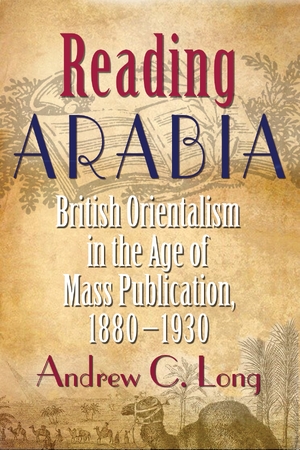"Long has produced a work that looks at Orientalism in a new way by foregrounding the popular over the erudite and the elitist; such a focused reading of the impact of Orientalism on mass culture in general and Arabian travel literature in particular has for some time been overdue."—International Journal of Middle East Studies
"The typical reader is likely to gain a deeper understanding about the ways Orientalist ideas have penetrated popular culture right up to the present. . . . A very important book."—Eric Hooglund, editor, Middle East Critique
"Both literary and historical in its approach, Long’s investigation revives the old debates about orientalism that scholars continue to grapple with in one form or another as an always-present agent of cultural hegemony."—Victorian Studies
"Long’s book provides a vivid picture of the social and intellectual atmospheres within which British travelers swanned, splashed and stumbled through history."—Ken Seigneurie, Simon Fraser University
"Reading the works of such prominent figures as Burton, Doughty, and Lawrence, Long makes a compelling argument about the productive function of the Oriental fantasy in mass culture and consumer economy of the late Empire."—Ali Behdad, author of Belated Travelers: Orientalism in the Age of Colonial Dissolution
Description
Reading Arabia traces the evolving tradition of British Orientalism in the late nineteenth and early twentieth centuries, examining the role of mass print culture in constructing the British public’s perception of “Arabia.” Long brings together close readings and ideological analyses of primary texts by Richard Burton, Charles Doughty, Robert Cunninghame Graham, Marmaduke Pickthall, and T. E. Lawrence, along with pamphlets, journalism and commentary, silent films, stage spectacles, and travel literature. Through these texts, Long examines the fantasy of the Orient and its constitutive function. Building on the pioneering work of Edward Said, Reading Arabia looks beyond foreign policy debates and issues of human rights to show how British Orientalism is rooted in words and phrases of a popular culture that shaped the way the public read and imagined the Arab world.
About the Author
Andrew C. Long currently teaches in the Department of Cultural Studies at the Claremont Graduate University. His articles have appeared in Studies in the Novel and Prose Studies.
February 2014

